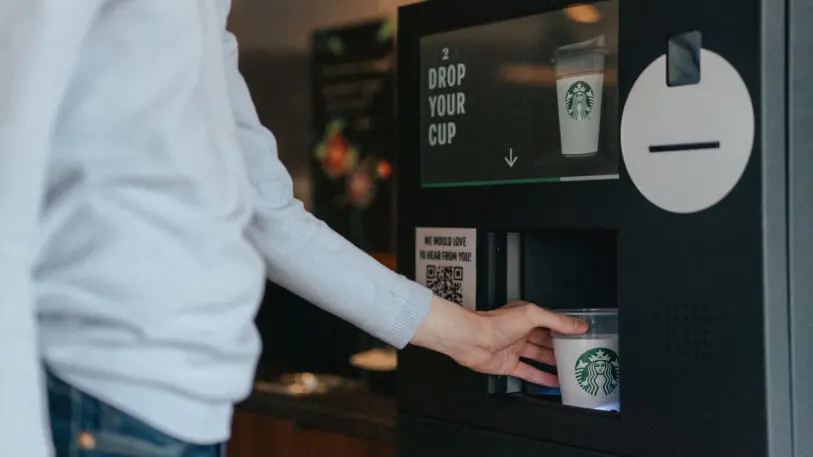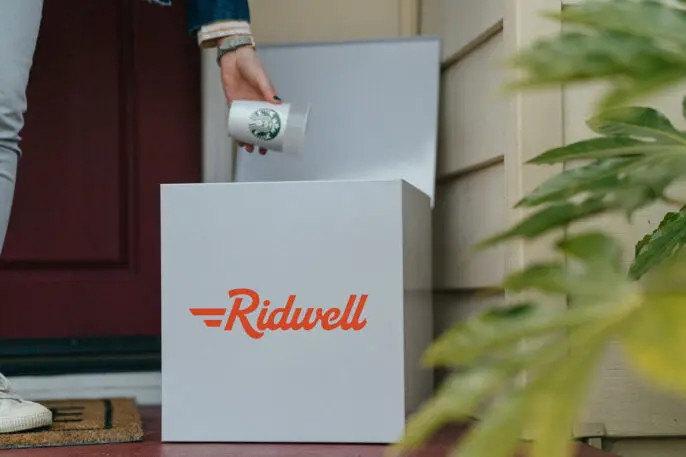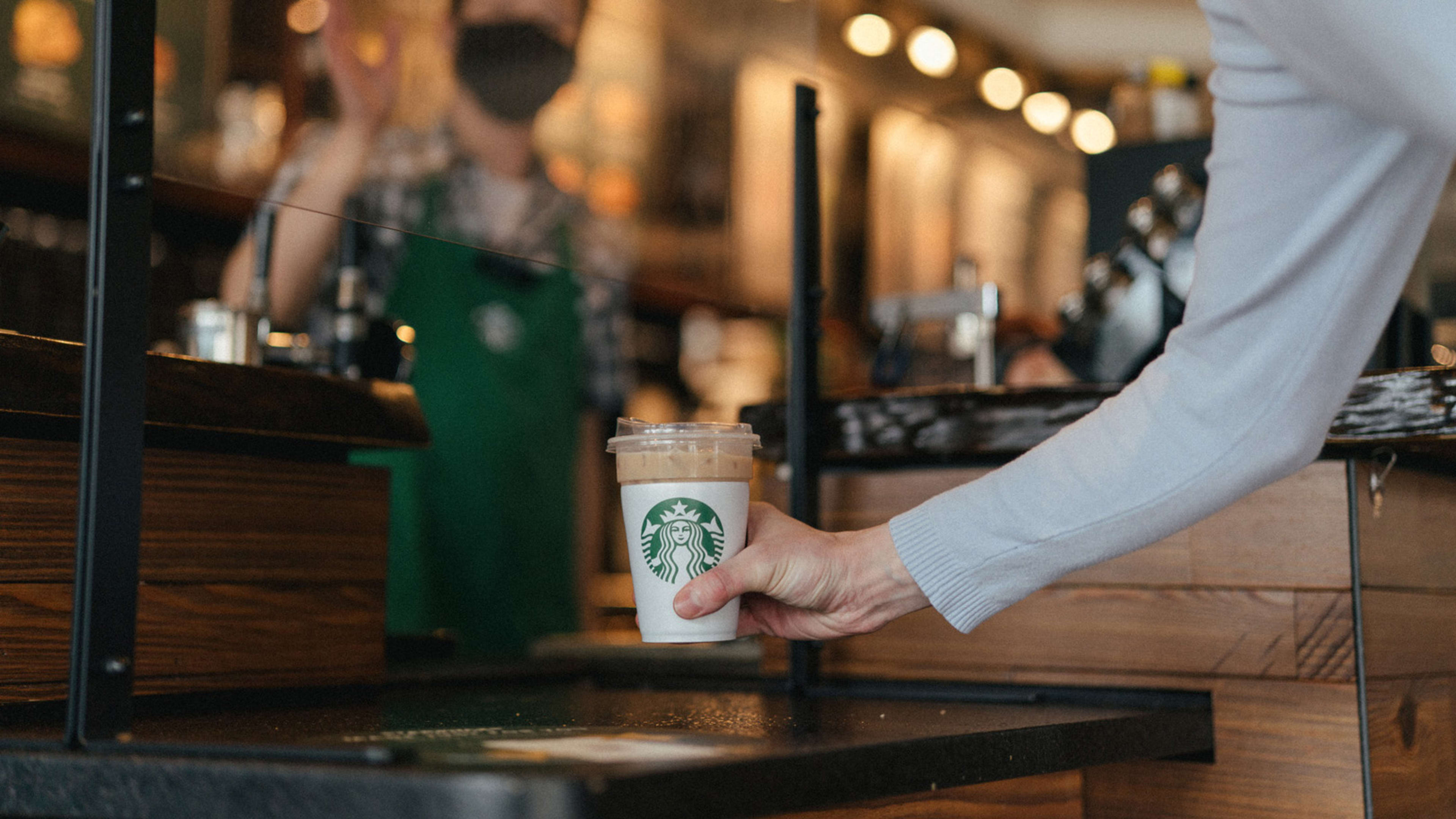If you get a cup of coffee at some Starbucks stores in Seattle, you now have the option of ordering it in a reusable takeout cup. The cup looks similar to the company’s plastic cups for cold drinks, but it’s designed to be sturdy enough for repeated reuse: When a customer returns a cup, it’s cleaned, sterilized, and ready for the next customer within 48 hours.
Of course, reusable cups—typically in the form of ceramic mugs—aren’t innovative for a coffee shop. (Starbucks also offers “for here” mugs, though baristas rarely seem to suggest them, and customers rarely request them; reusable cups were also temporarily banned because of the pandemic.) But in a world where most customers expect to walk out the door with their coffee and even people who own reusable travel mugs can forget to carry them, the system is another option. And it’s something that the company plans to roll out more widely. In South Korea, all 1,500 Starbucks stores will phase out single-use cups over the next four years.

The pilot, which started on March 30, will last through the end of May. It’s not clear where it will lead; after trying a reusable-cup pilot at London’s Gatwick Airport in 2018, the company decided not to make the practice permanent. But Starbucks stores in South Korea will begin rolling out a similar program this summer; by 2025, all stores in the country will stop offering disposable cups.

In the U.S., the proposed Break Free From Plastic Pollution Act calls for banning single-use items that aren’t recyclable or compostable, and since Starbucks paper coffee cups aren’t recyclable or compostable yet in most locations, they would likely be included in the ban. Activists are pushing for the company to also voluntarily move more quickly in the U.S. and the rest of the world.
“Starbucks’s decision to end its reliance on throwaway materials and implement a reuse program in South Korea is the kind of approach we have been waiting to see,” John Hocevar, oceans campaign director for Greenpeace USA, said in a statement. “But the company must not stop here, particularly as the bulk of Starbucks’s plastic footprint is not limited to Korea. There is no reason that Starbucks cannot expand this same reusable kiosk technology to its stores in the United States and around the world to ensure a much greater impact as quickly as possible. The pollution crisis calls for these types of bold solutions and we no longer have time to wait to scale them up in stores around the world in another 10 years.”
Recognize your brand’s excellence by applying to this year’s Brands That Matter Awards before the early-rate deadline, May 3.
